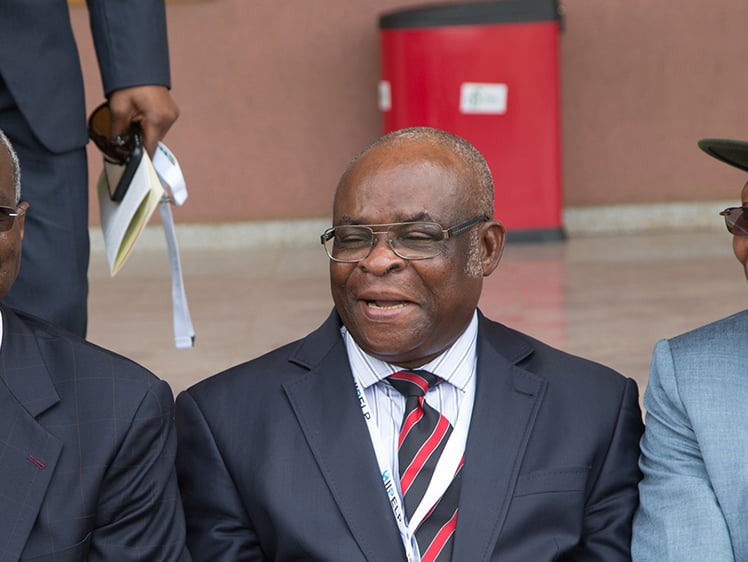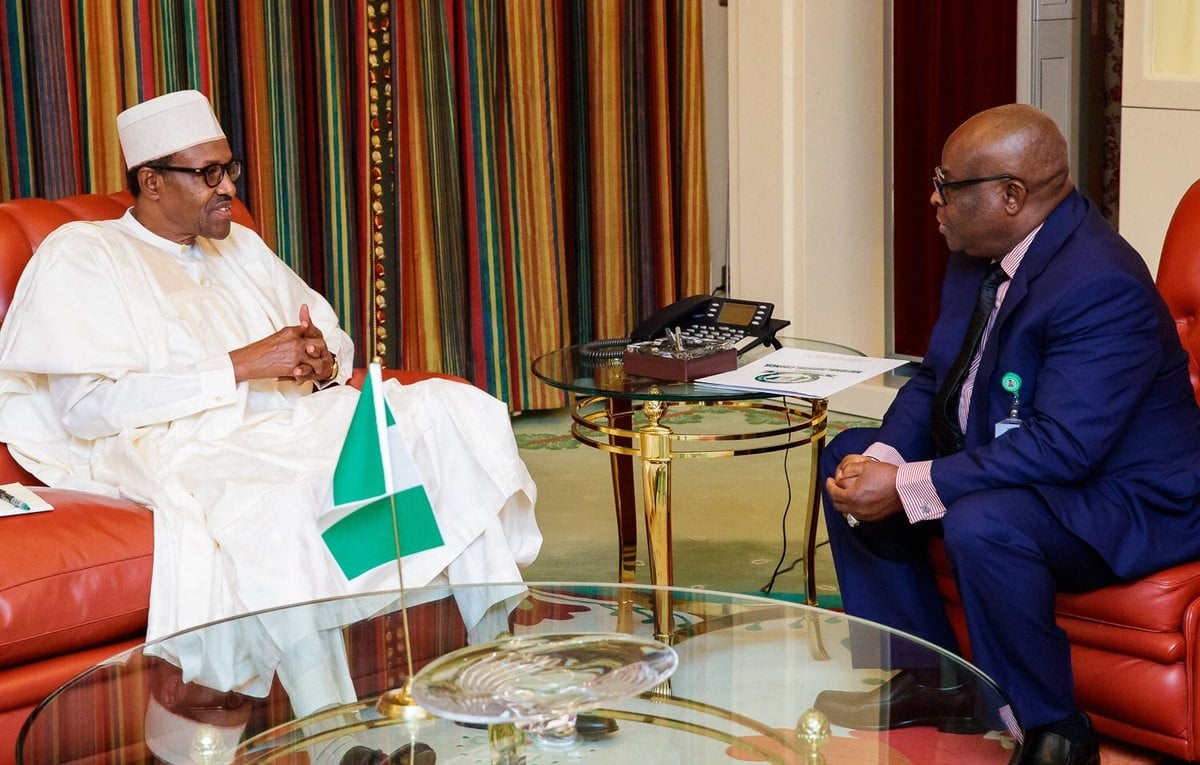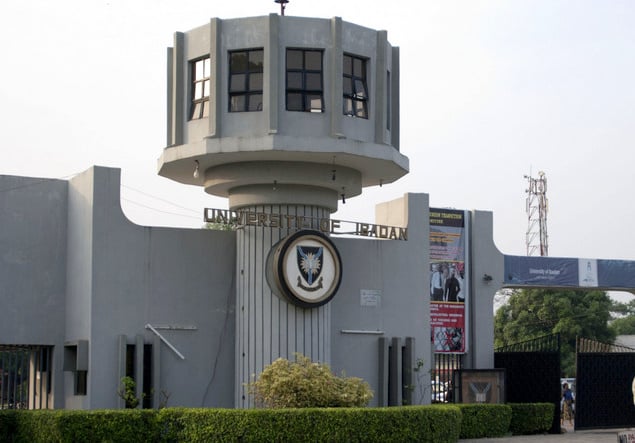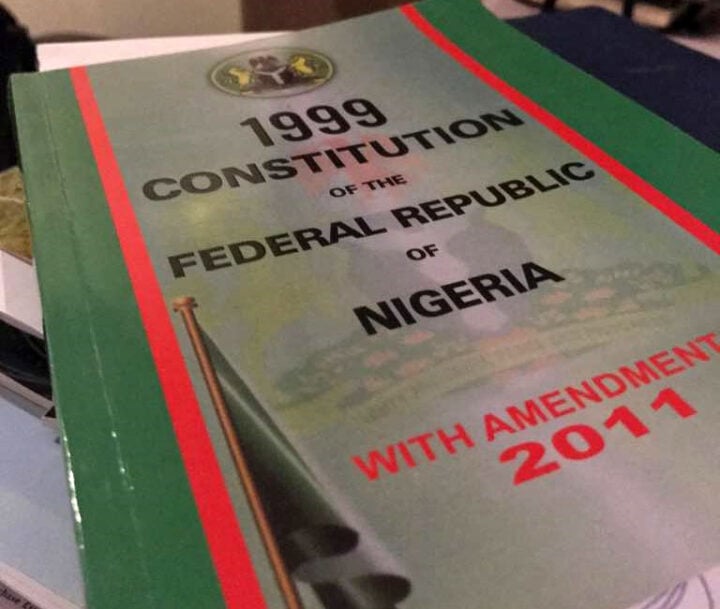BY EMEKA NWADIOKE
When the news broke on the planned arraignment of embattled Justice Walter Nkanu Onnoghen at the Code of Conduct Tribunal (CCT), the legal community was aghast. Essentially, the shock arose from the well settled position of both trial and appellate courts – including interestingly, the CCT – that being a judicial officer, Onnoghen must first be subjected to ‘orderly room trial’ by the National Judicial Council (NJC) prior to prosecution. However, when the planned arraignment transmuted to “suspension” of Onnoghen by President Muhammadu Buhari and the swearing-in of Justice Ibrahim Tanko Mohammed as Acting Chief Justice of Nigeria, the shock turned to utter disbelief.
It is recalled that Onnoghen’s travails started with a petition by one Dennis Aghanya who claimed that Onnoghen infringed the Code of Conduct for public officers. Aghanya is a former aide to Buhari. Unlike sundry corruption-related complaints against Buhari’s acolytes, the petition received speedy attention by the Code of Conduct Bureau (CCB). It is doubtful that CCB had sufficient time, if at all, to investigate the allegation, contrary to paragraph 3(e) of the Third Schedule to the 1999 Constitution which mandates the bureau to “receive complaints about non-compliance with or breach of the provisions of the Code of Conduct or any law in relation thereto, investigate the complaint and, where appropriate, refer such matters to the Code of Conduct Tribunal.” Instead, charges were promptly drafted and filed within 24 hours and arraignment slated for the third working day.
The apparent haste fuelled speculations of a high-profile plot to oust Onnoghen, moreso as it took then Acting President Yemi Osinbajo SAN to send Onnoghen’s name to the Senate for confirmation. Following legal fireworks, the CCT adjourned till Monday, January 28, 2019 to hear the application challenging its jurisdiction to determine the charge. There was also a pending application by the prosecution praying the tribunal to direct Onnoghen to “step aside” until the determination of the case.
The disbelief within the legal community was therefore complete when news filtered in that the tribunal suddenly reconvened within 24 hours after it had adjourned and with only two of its three members to deliver a ruling on an earlier ex-parte application dated January 9 “directing” Buhari to “suspend” Onnoghen. The suspension of Onnoghen has however thrown up more fundamental issues. It is recalled that in its ruling on whether to adjourn sine die pending several restraining orders from both the Federal High Court and the National Industrial Court as well as a pending appeal at the Court of Appeal, the tribunal had effectively declined to make the order when it held that though the tribunal was not bound by the plethora of restraining orders, it was duty-bound to first decide the question of jurisdiction. It then directed the defence to proceed to argue its application challenging the jurisdiction of the tribunal.
Advertisement
The application was ultimately adjourned to January 28 for hearing. It is argued that the tribunal had no powers to reopen the matter of whether to grant an order directing Onnoghen to “step aside,” having not resolved the issue of jurisdiction. In Intercity bank Plc v Bello Sani Ali, II WRN 127, the Court of Appeal held that “When there is such a challenge to his (jurisdictional) competence, the judge’s jurisdiction at that stage is strictly restricted to the exercise of ascertaining whether or not he has jurisdiction to entertain the cause or matter. See Okoye v N. C. F. Co. Ltd (supra). In the instant case therefore, the lower court was clearly in error in embarking on hearing of matters arising from Suit No. K/234/99 including the motion for interlocutory injunction filed by the respondent, on which the ruling of 19/7/2000 is now on appeal.” It is further argued that the said ruling of the tribunal rendered it ‘functus officio’ on the subject of making any orders directing Onnoghen to step aside based on an ex-parte application filed January 9, 2019. See Akinsanya v United Bank for Africa Ltd. (1986) 4 NWLR (Pt.35) 273, (1986) 7 SC (Pt.1) 233; Western Steel Works Ltd. v. Iron and Steel Workers Union (1986) 3 NWLR (Pt. 30) 617 and Odutola v. Oderinde (2004) 12 NWLR (Pt. 888) 574.
How the tribunal was able to resurrect the ex-parte application and rule on same remains a legal mystery that may be unraveled by the appellate courts. Apparently, the prosecution did not also bring to the notice of the Court of Appeal the prior order it obtained the previous day directing the president to suspend Onnoghen. It is however argued that the said order is caught by the subsequent restraining order of the Court of Appeal, moreso as it had not been carried out prior to the appellate court’s order. In fact, it may raise issues of whether the prosecution could be cited for contempt in the circumstances. See Vaswani Trading Company v. Savalakh and Company (1972) 12 SC at P. 77. While the prosecution had argued that its ex-parte application was merely seeking an order asking Onnoghen to “step aside,” a point reinforced by Buhari in his address at the swearing-in of Justice Mohammed, the pertinent question is whether Onnoghen can be suspended in the manner done.
It is contended that the Constitution does not anticipate suspension of the Chief Justice of Nigeria or any of the heads of court listed in Section 292 of the Constitution except perhaps by the National Judicial Council. Further, there is no apparent lacuna on the issue. Accordingly, the recourse to the tribunal through an ex-parte order is fraught with legal loopholes. It is further contended that the only route available to the prosecution or the Federal Government is that set out in Section 292 of the Constitution. In fact, the Constitution is equally specific that removal of judicial officers pursuant to infractions of the Code of Conduct by judicial officers can only be done through the NJC.
Advertisement
Instructively, section 23 of the Code of Conduct Bureau and Tribunal Act is on all fours with the constitutional provisions. This may explain why the ex-parte application was merely “brought under the inherent jurisdiction of this tribunal as enshrined under the constitution of the Federal Republic of Nigeria 1999 as amended.” On the disciplinary powers of the NJC over judicial officers, Section 153(i) of the 1999 Constitution establishes the NJC while paragraph 21(b) of the Third Schedule to the 1999 Constitution vests the NJC with the power to “recommend to the President the removal from office of the judicial officers specified in sub-paragraph (a) of this paragraph and to exercise disciplinary control over such officers,” including the Chief Justice of Nigeria.
It is instructive that in _NGANJIWA V FEDERAL REPUBLIC OF NIGERIA_ (2017) LPELR-43391(CA), the Court of Appeal validated this inflexible constitutional provision when it held that a judicial officer cannot be proceeded against without a verdict from the National Judicial Council. The court had held as follows: “Whenever a breach of judicial oath occurs, it is a misconduct itself, then the NJC is the appropriate body to investigate such breaches by the judicial officer and if found to be so, such judicial officer shall face disciplinary action and the NJC may recommend the removal of such a judicial officer to the appropriate authority which is either the President in the case of a Federal Judicial Officer or the Governor of the State in the case of a State Judicial Officer and/or take other actions appropriately.”
In fact, the tribunal had on May 15, 2018 discharged Justice Sylvester Ngwuta of the Supreme Court on charges of non-assets declaration among others. Relying on the Nganjiwa judgement of December 2017, the two-man panel of the tribunal unanimously held that the disciplinary powers of the NJC could not be interfered with by any other body, court or tribunal. According to Justice William A. Atedze, “This means that any allegation of official misconduct will first have to be referred to the NJC to the exclusion of any other body, court or tribunal.”
It is recalled that Justice John Tsoho of the Federal High Court had also discharged the Supreme Court judge on similar grounds. This raises questions of abuse of court process and disciplinary sanctions arising from potential infraction of Rules of Professional Conduct for Legal Practitioners and relating to the prosecution filing similar charges before the tribunal notwithstanding the plethora of decided cases both by the tribunal and the appellate court. Another issue that must agitate the minds of jurists is the consequential order made by the tribunal directing the president to swear-in Justice Mohammed as Acting Chief Justice of Nigeria and Chairman, National Judicial Council “in order to prevent a vacuum in the Judicial Arm of Government pending the determination of the Motion on Notice.”
Advertisement
It is contended that in view of the express provisions of paragraph 21 of the Third Schedule to the 1999 Constitution which vests the NJC with the power to “recommend to the President” the person to be appointed Chief Justice of Nigeria from a list provided by the Federal Judicial Service Commission, the tribunal overreached itself when it arrogated to itself the power to appoint a Chief Justice of Nigeria vide the consequential order. In so doing, it again violated its own decision in the Ngwuta Case by usurping the powers of the NJC.
This is akin to appointing the head of the judicial arm of government through the backdoor. The swearing-in of Justice Tanko as the Acting Chief Justice of Nigeria is reminiscent of last year’s compulsory retirement of Justice Obisike Orji by NJC for accepting to be sworn in as the Acting Chief Judge of Abia State without being recommended by the council and following the suspension of Justice Theresa Uzokwe by the Abia State House of Assembly. The NJC – a Third Schedule “Federal Executive Body” as the tribunal – had determined that “The suspension of the Chief Judge of Abia State (Justice Theresa Uzokwe) by the State House of Assembly without a prior recommendation by the National Judicial Council violates the provisions of the Constitution of the Federal Republic of Nigeria. Consequently, the subsequent act of appointing and swearing-in of Hon. Mr. Justice Obisike Orji as the Acting Chief Judge is invalid for being unconstitutional.”
In a subsequent statement, the NJC further stated that “Hon. Mr. Justice Obisike Orji was earlier queried by the council for allowing himself to be sworn in as acting Chief Judge, and thereby colluding in, and aiding an unconstitutional process. His reply was unsatisfactory and the council recommended his compulsory retirement.” However, in the instant case where Justice Mohammed has assumed both the post of Acting Chief Justice of Nigeria and Chairman of the NJC, it remains to be seen how this will play out. · Nwadioke is a Notary Public and former member of the NBA Criminal Justice Reform Committee
Advertisement
Views expressed by contributors are strictly personal and not of TheCable.






